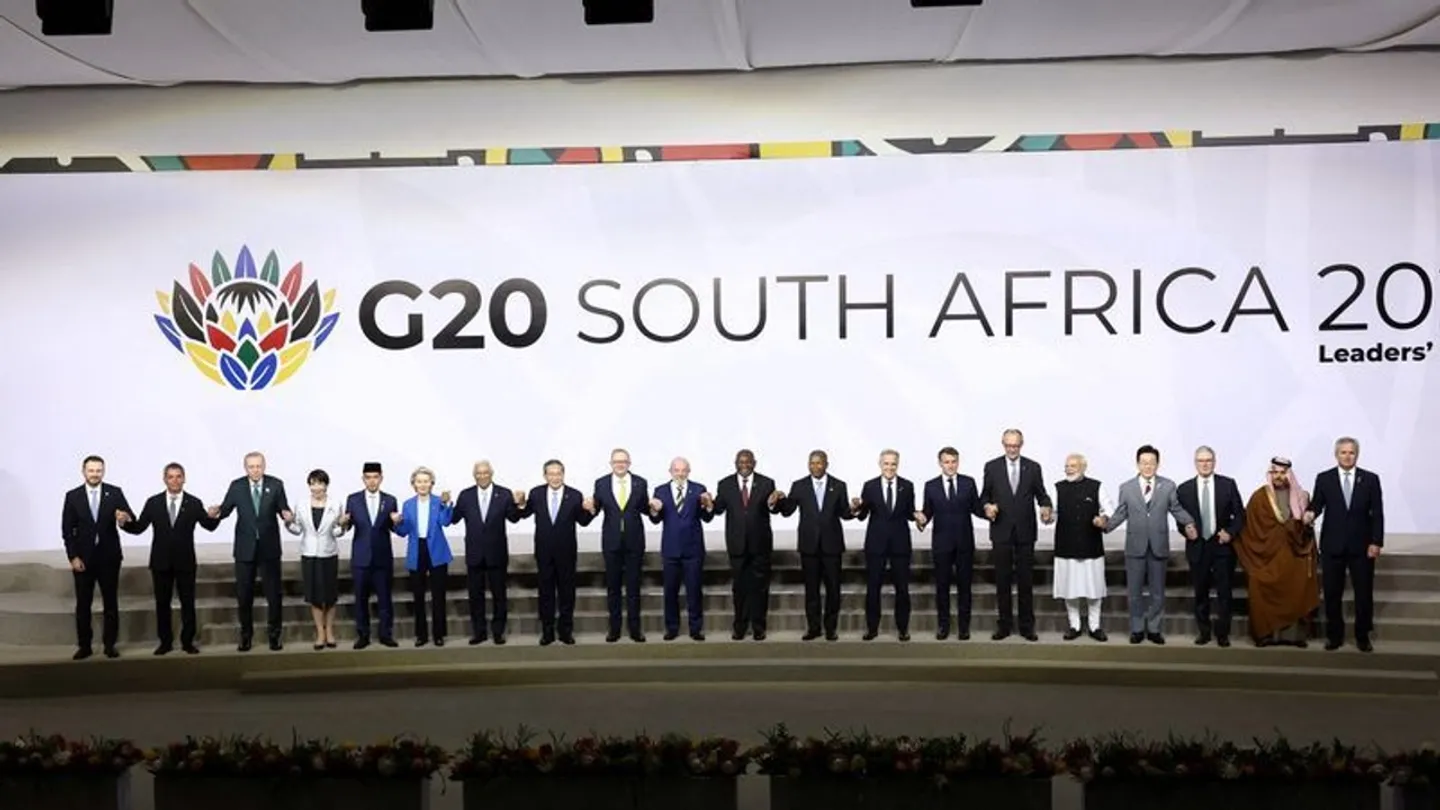World leaders at the G20 summit in South Africa opened the final day on Sunday with a plenary session held by President Cyril Ramaphosa titled “A Fair and a Just Future for All Critical Minerals; Decent Work; Artificial Intelligence.” The session highlighted the importance of supply chains for critical minerals, employment issues and the role of artificial intelligence in future economies.
On Saturday, two additional sessions addressed key global challenges. The first, on inclusive and sustainable economic growth, covered building economies, trade, development finance and debt sustainability. The second, titled “A Resilient World – the G20’s Contribution,” focused on disaster risk reduction, climate change, just energy transitions and food systems. The summit marks the first time the G20 has been hosted on the African continent and was held under South Africa’s presidency, with the theme “solidarity, equality and sustainability.”
A summit declaration was adopted that referenced multiple conflict zones, stating: “Guided by the Purposes and Principles of the UN Charter in its entirety, we will work for a just, comprehensive, and lasting peace in Sudan, the Democratic Republic of Congo, the Occupied Palestinian Territory, Ukraine.” The summit concluded with a closing ceremony scheduled for 1 pm local time (GMT +1100).
Notably, the United States did not participate in the summit’s hand-over to the incoming presidency. Foreign Minister Ronald Lamola said the US wishes to conduct the hand-over through its embassy charge d’affaires, but South Africa insisted that the hand-over must happen at the head-of-state or minister level. He said the hand-over would instead take place at the Department of International Relations and Cooperation office from Monday.
Earlier, former President Donald Trump announced he would not send a US official, accusing South Africa of “human rights abuses” against the white Afrikaner population — allegations the South African government rejects. Relations between Washington and Pretoria are reportedly at their lowest amid disagreements over foreign and domestic policies.






